In
News

Today, our first five research fellows join the Kolleg. A very warm welcome to Christina Brauner (Tübingen), Ann-Sophie Schoepfel (Harvard/Sciences Po), Änne Söll (Bochum), Sabine Sörgel (Surrey) and Callie Wilkinson (Warwick)!
Christina Brauner’s research on cross-cultural diplomacy in West Africa, (dis)entanglement, translation, narratives of misunderstanding, and the history of religion has exposed her to the distinct academic cultures in Münster, Bielefeld, Berlin, London, Princeton, and her current academic home in Tubingen. Her work in global history is informed by a strong interest in theory and historical methodology, with a particular focus on the inescapable concepts of time and temporality. At global dis:connect, Christina is investigating markets in the border region of the Lower Rhine, where competition and borders both constituted markets as social institutions and dis:connected the subjects involved.
Ann-Sophie Schoepfel’s intellectual background covers History, Art History, Anthropology, International Relations, International Law, and Legal History along with stops in Paris, Heidelberg, Tokyo, Hanoi and Harvard. Her research on the colonialist implications of war-crimes trials in Asia as well as on Vietnamese migration in the context of the Cold War has earned her numerous awards and academic honors. Sophie’s current research at global dis:connect centers Afro-Asian voices — jurists, writers, and anticolonial revolutionaries — from across the French former colonial empire, as they struggled to reimagine state sovereignty and international law in the Cold War crucible.
Änne Söll’s work focuses on the art of the 20th and 21st centuries, particularly on aspects of gender, mainly masculinities. Other areas of interest are period rooms, magazines, photography, video installations and the art of the Weimar Republik, specifically the Neue Sachlichkeit (New Objectivity). While at global dis:connect, Änne is reconstructing the lives of three Jewish art historians — all women — who were forced to flee Germany in the 1930s and went on to forge successful careers as curators in the USa from 1950s onwards. A key question is how the strategies employed by these female art historians bridge the gaps and/or dealt with the voids in their professional careers while trying to re-connect to the global world of art history.
Sabine Sörgel combines her passion for travel and dance with sophisticated, philosophically informed theories derived from critical theory, philosophy, sociology, and theatre. Through sojourns in Mainz, Aberystwyth, London, and Jamaica, Sabine has published on performance, post-colonial politics, global culture, and the social power implicated in various gazes. While visiting global dis:connect, Sabine is researching how public performances over the last decade have invoked images of race, identity, rights, history, and memory.
Callie Wilkinson studies the dramatic expansion of the British Empire in the eighteenth and nineteenth centuries and its sociocultural impact at home and abroad. In previous research projects conducted at Cambridge and the University of Warwick, she has examined how the idea of indirect rule was contested within the British East India Company as well as the contemporary debates on the extent to which information about the Company should be disseminated to the public. At global:disconnect, Callie is investigating how Company soldiers’ testimony affected broader discourses about the Company’s military operations in an age before professional war correspondents.
Continue Reading
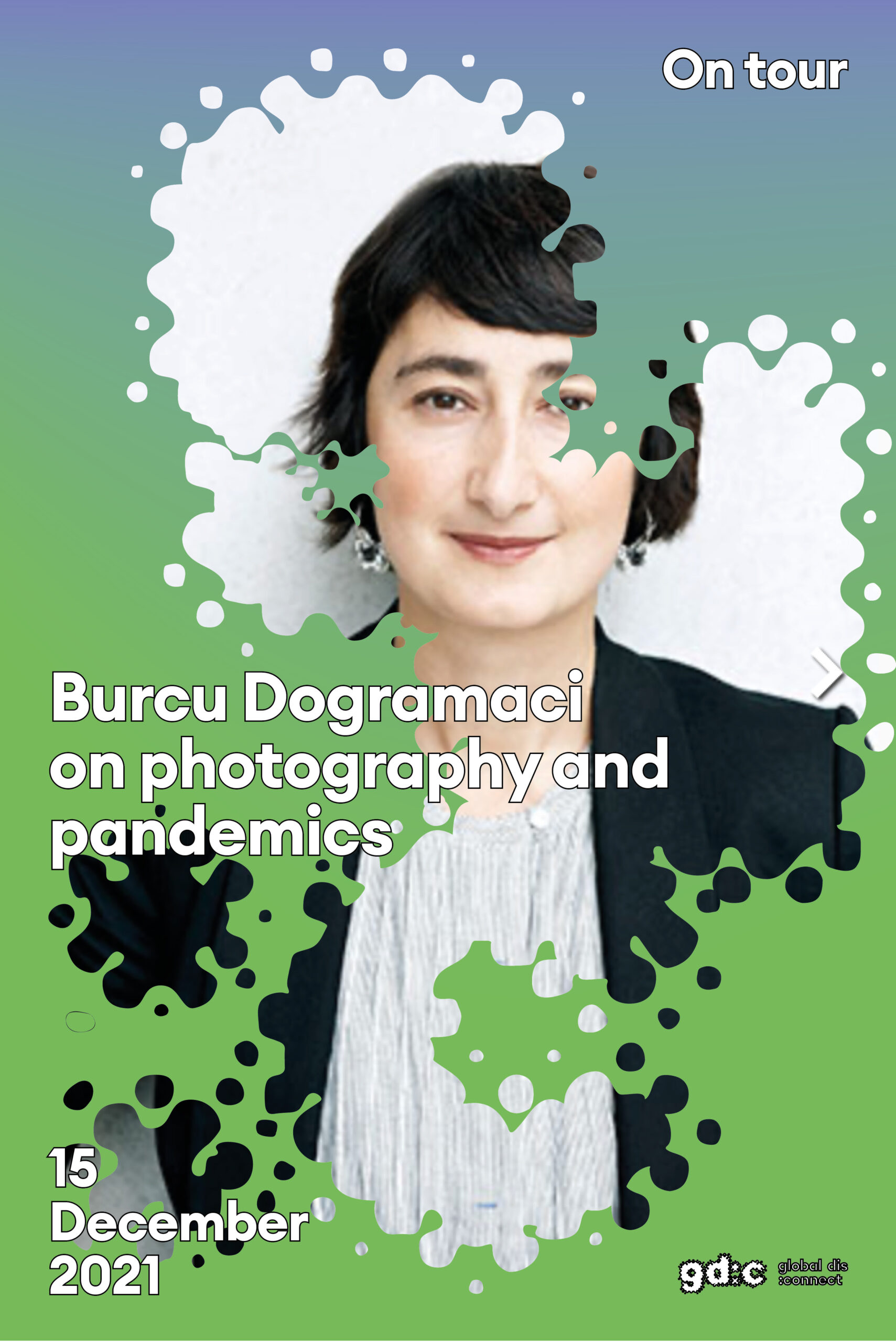 Burcu Dogramaci, art historian and one of the Kolleg’s directors, spoke on “Pandemische Kamera: Gefahr und Schutz im fotografischen Bild” at the conference “Digital Realities: Political Imagery and Mediatized Nature in Times of COVID-19” on 15 December 2021.
Continue Reading
Burcu Dogramaci, art historian and one of the Kolleg’s directors, spoke on “Pandemische Kamera: Gefahr und Schutz im fotografischen Bild” at the conference “Digital Realities: Political Imagery and Mediatized Nature in Times of COVID-19” on 15 December 2021.
Continue Reading
 Burcu Dogramaci, art historian and one of the Kolleg’s directors, spoke on “Pandemische Kamera: Gefahr und Schutz im fotografischen Bild” at the conference “Digital Realities: Political Imagery and Mediatized Nature in Times of COVID-19” on 15 December 2021.
Continue Reading
Burcu Dogramaci, art historian and one of the Kolleg’s directors, spoke on “Pandemische Kamera: Gefahr und Schutz im fotografischen Bild” at the conference “Digital Realities: Political Imagery and Mediatized Nature in Times of COVID-19” on 15 December 2021.
Continue Reading






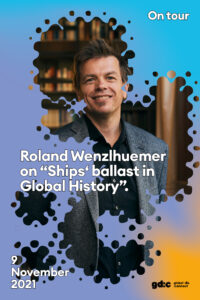 Roland Wenzlhuemer, historian and one of the Kolleg’s directors, delivered the opening lecture for the Master program "Global History at the University of Bayreuth. He spoke on “Ships' ballast in Global History”.
Roland Wenzlhuemer, historian and one of the Kolleg’s directors, delivered the opening lecture for the Master program "Global History at the University of Bayreuth. He spoke on “Ships' ballast in Global History”.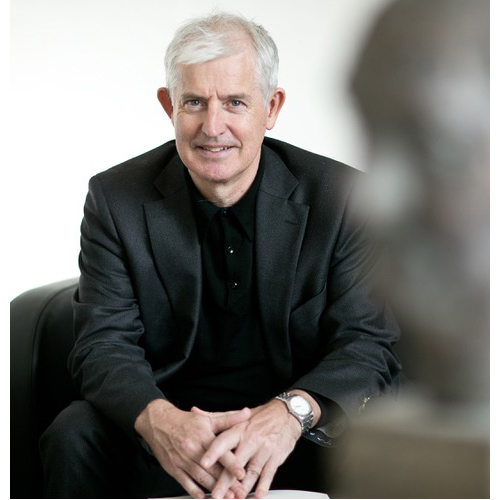 On 8 November, Christopher Balme, theatre scholar and one of the Kolleg’s directors, spoke on “Perpendicular Theatres and Mammy Wagons: The infrastructure of tragedy in post-independence Nigeria. Workshop “Traveling Tragedy”” at the University of Konstanz.
On 8 November, Christopher Balme, theatre scholar and one of the Kolleg’s directors, spoke on “Perpendicular Theatres and Mammy Wagons: The infrastructure of tragedy in post-independence Nigeria. Workshop “Traveling Tragedy”” at the University of Konstanz.
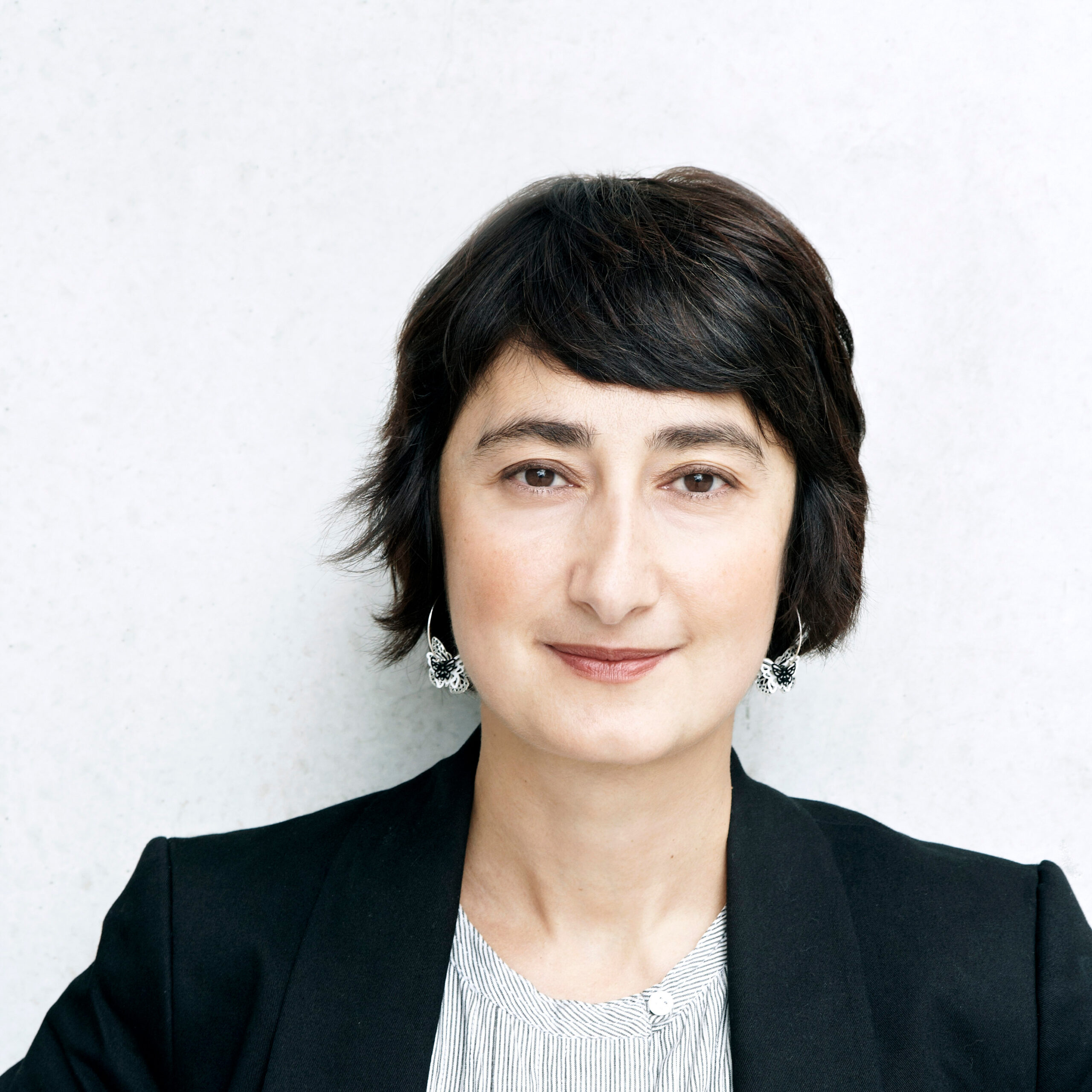 On 5 November, Burcu Dogramaci, art historian and one of the Kolleg’s directors, presented her work at the Jahrestagung des Verbands Österreichischer Kunsthistorikerinnen und Kunsthistoriker in Vienna. She spoke on “Kunst handeln. Galeristinnen der Moderne im Einsatz für die Kunst ihrer Zeit“.
On 5 November, Burcu Dogramaci, art historian and one of the Kolleg’s directors, presented her work at the Jahrestagung des Verbands Österreichischer Kunsthistorikerinnen und Kunsthistoriker in Vienna. She spoke on “Kunst handeln. Galeristinnen der Moderne im Einsatz für die Kunst ihrer Zeit“.
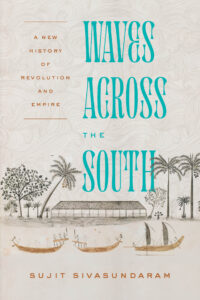 We are proud to report that our future fellow Sujit Sivasundaram’s latest book ‘Waves Across the South: A New History of Revolution and Empire’ wins this year’s British Academy Book Prize for Global Cultural Understanding. Sujit, who will join the Kolleg as a fellow in January, is a historian at the University of Cambridge. In his book, he radically shifts perspective and re-thinks British colonial history as seen from the southern seas. In doing so, he presents a much-needed adjustment in our Eurocentric imagination of the Age of Revolutions.
We are proud to report that our future fellow Sujit Sivasundaram’s latest book ‘Waves Across the South: A New History of Revolution and Empire’ wins this year’s British Academy Book Prize for Global Cultural Understanding. Sujit, who will join the Kolleg as a fellow in January, is a historian at the University of Cambridge. In his book, he radically shifts perspective and re-thinks British colonial history as seen from the southern seas. In doing so, he presents a much-needed adjustment in our Eurocentric imagination of the Age of Revolutions.
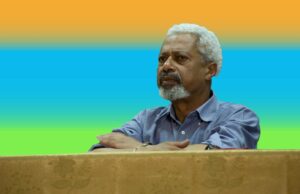 Tom Menger, historian at the Kolleg, has written on German colonial history in East Africa in the work of Nobel laureate Abdulrazak Gurnah. His German language article can be found in today’s Frankfurter Allgemeine Zeitung (
Tom Menger, historian at the Kolleg, has written on German colonial history in East Africa in the work of Nobel laureate Abdulrazak Gurnah. His German language article can be found in today’s Frankfurter Allgemeine Zeitung (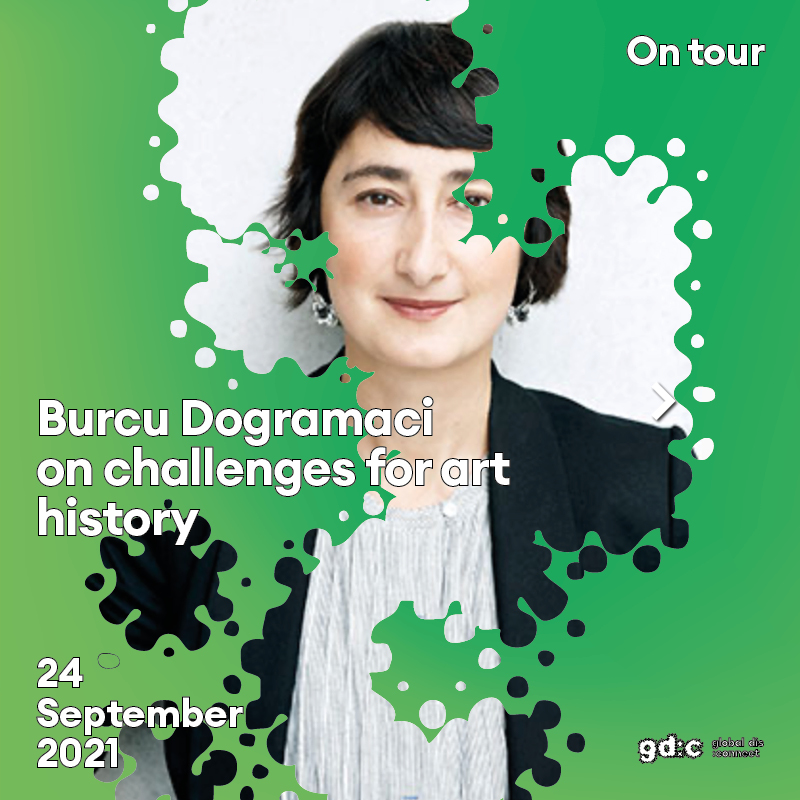 On 24 September, Burcu Dogramaci, art historian and one of the Kolleg’s directors, gave a keynote lecture at the conference “Crossing Borders. Migration and the Visual Arts in Denmark” at the Royal Danish Academy of Science and Letters in Copenhagen. The keynote „Beyond Boundaries: Migration as a Challenge to Art History" discussed the challenge of bringing dislocation and (art)history together.
On 24 September, Burcu Dogramaci, art historian and one of the Kolleg’s directors, gave a keynote lecture at the conference “Crossing Borders. Migration and the Visual Arts in Denmark” at the Royal Danish Academy of Science and Letters in Copenhagen. The keynote „Beyond Boundaries: Migration as a Challenge to Art History" discussed the challenge of bringing dislocation and (art)history together.
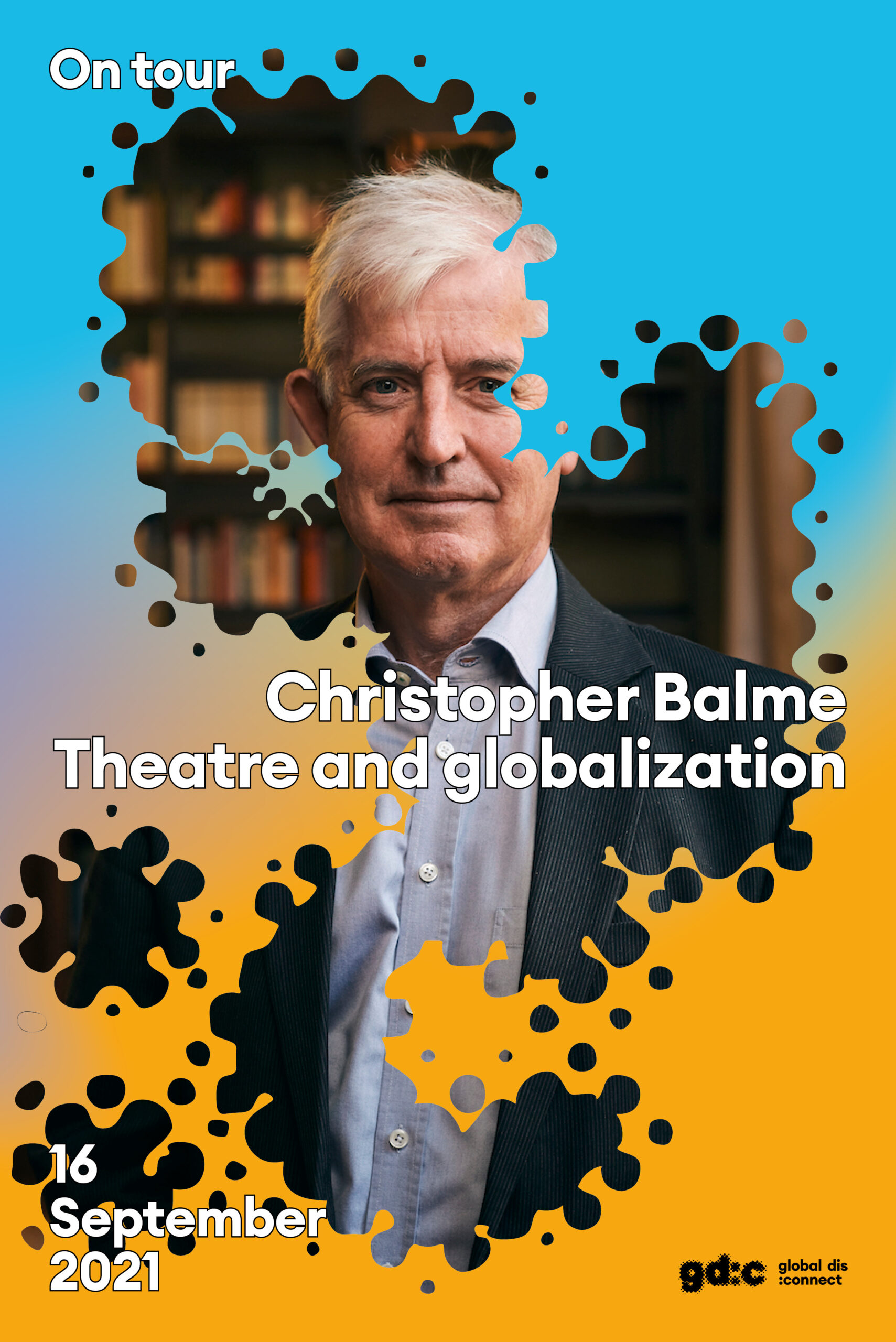 On 16 September, Christopher Balme, theatre scholar and one of the Kolleg’s directors, spoke on “Theatre and globalization” at the Goethe Center, Yeriwan, Armenia.
On 16 September, Christopher Balme, theatre scholar and one of the Kolleg’s directors, spoke on “Theatre and globalization” at the Goethe Center, Yeriwan, Armenia.
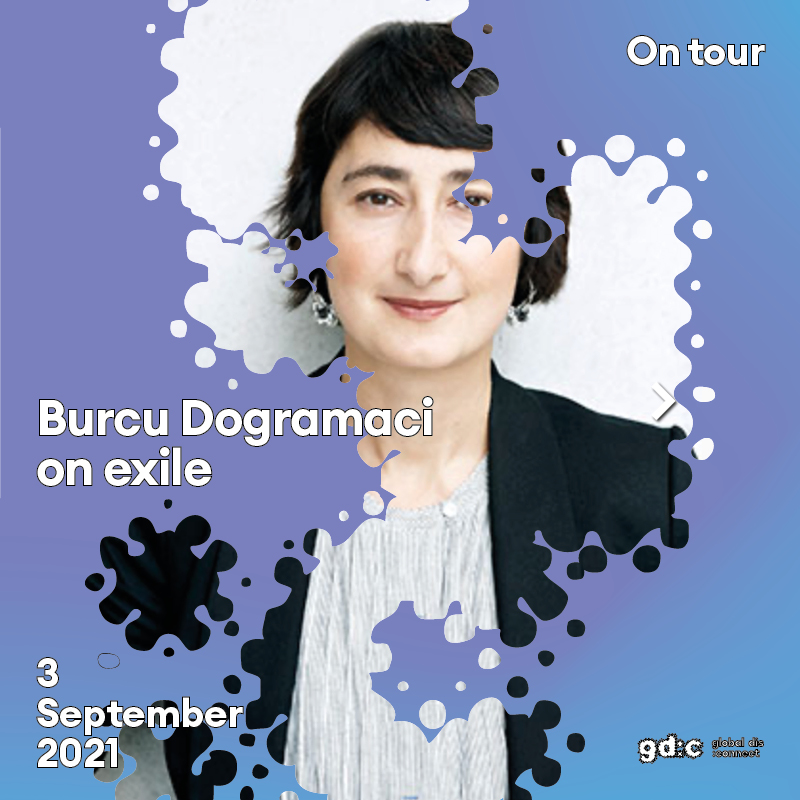 On 3 September, Burcu Dogramaci, art historian and one of the Kolleg’s directors, co-delivered a lecture at the Jahrestagung der Gesellschaft für Exilforschung at the NS-Dokumentationszentrum in Munich. The talk „Erinnerung findet Stadt. Vergegenwärtigung von Exil an den Orten von einst“ looked at dis:connectivity in the context of memory and exile.
On 3 September, Burcu Dogramaci, art historian and one of the Kolleg’s directors, co-delivered a lecture at the Jahrestagung der Gesellschaft für Exilforschung at the NS-Dokumentationszentrum in Munich. The talk „Erinnerung findet Stadt. Vergegenwärtigung von Exil an den Orten von einst“ looked at dis:connectivity in the context of memory and exile.